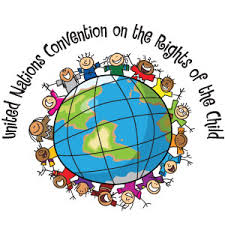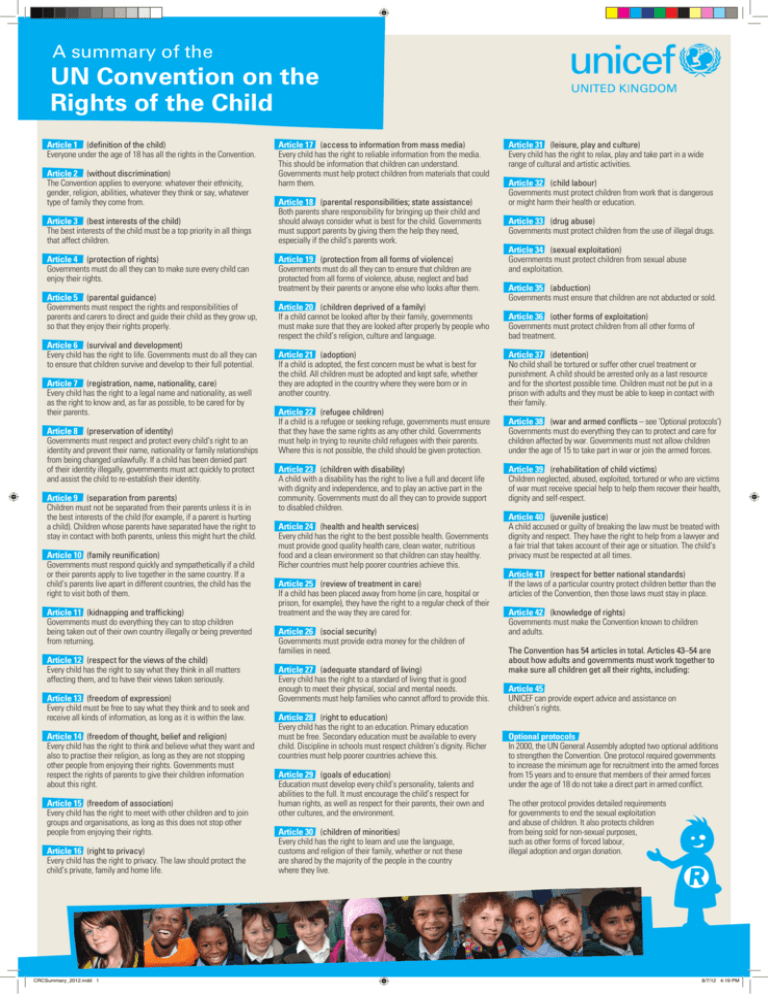
Two CRC Committee reports also mention difficulties in securing child identity documents. Several Committee reports expressed concern around the lack of routine health surveillance and lack of data availability, needs assessment and evidence informed policy on the situation of children with a mother in contact with the criminal justice system, which were deemed insufficient in the Dominican Republic Switzerland Thailand Qatar, Italy and Mexico (Bangkok Rule 68 and 70). The 2016 CRC report on Iran illustrated the link between prison conditions and development of ill health: “The Committee is concerned that children, in particular Baha'i Transparency of data on children in prison Many countries were also neglectful of the developmental needs of children, and fail to uphold their right to child-appropriate health care in detention (Tonga, Cambodia, Samoa, Bangladesh, Iran, Brazil, Dominican Republic, Myanmar, Cambodia, South Sudan, Yemen, Honduras, Russian Federation and Panama) (contra Bangkok Rule 51). Similar concerns were documented in 2016 by the CEDAW Committee in Burundi “concerned at the number of women detained with infants and young children” (CEDAW, Access to child-appropriate healthcare equivalent to that in the community In 2013, in Bolivia, where children can stay up to 6 years with mothers in prison, the CCPR Committee was “ concerned about the large number of children now living in prison with their families” (CCPR, 2013). Iraq (“ concerned about cases of children staying in prison for several weeks after the execution of their mothers”) (CRC, 2015c) and South Sudan (“ subjected to neglect, ill-treatment and abuse, and lack adequate access to medical care, including for their young children”) (CEDAW, Prison congestion and poor detention conditions conducive to ill-healthĬongested and unhygienic prison conditions ill-suited to the needs of babies and children is evident in many Committee reports. Many countries were observed by the UN Committees to fail in providing safe and adequate accommodation for children living with their mothers in prison and protecting them from exposure to trauma, neglect and abuse.

16 countries are in breach of the prioritisation of the “best interests of the child” principle when deciding whether the child can stay with their mother in detention, the provision of child care facilities and appropriate paediatric care, and that these Safe accommodation of children in detention Table 4 reveals a broad range of failures of states parties to prioritise the best interests of the child, and in their obligation to protect and uphold the basic human rights of children detained with their mothers in the 43 countries. A broad range of countries are represented, the majority of which are located in Africa (Benin, Burkina Faso, Burundi, Eritrea, Ethiopia, Kenya, Lesotho, Mali, Mauritius, Mozambique, Nigeria, Rwanda, South Sudan, Due process and prioritisation of “Best interest of the Child” The final data set of 51 UN Committee reports documented direct violations of the Mandela and Bangkok Rules in 43 countries, each with a diverse range of durations of time permitting children to stay with incarcerated mothers (6 months to 8 years, with Eritrea observing no limit). The search yielded 905 (316 CRC, 246 CEDAW, 173 CAT and 170 CCPR) reports promulgated since 2010-mid 2022, and were subsequently carefully screened using a range of search terms as illustrated in Table 2.Įach Committee report was then examined, by focusing on scrutinising the Results The rights of detained women and children are additionally provided for in the Convention on the MethodologyĪ comprehensive global search was conducted on the UN Human Rights treaty data base of all published treaty body (Concluding Observations) reports, confined to the Committees of the CRC, CEDAW, CAT and ICCPR since 2010. Table 1 presents all relevant international treaties and guidelines that guarantee children's rights in detention settings. The rights of children living in detention are protected by a range of positive obligations under a range of international treaties to uphold the human and health rights of people deprived of their liberty, with binding obligations to not ill-treat those in detention. Extant data indicates that at least 410,000 Treaties and guidelines that guarantee children's rights: Best interests of the Child The female prison population has increased by about 50 % since 2000, in comparison to the 18 % rise in male prisoners (Walmsley, 2017). 740,000 are women, with recent data indicating an increase of over 100,000 in this minority prison population in the past ten years (Penal Reform International, 2021).


Over 11 million people are detained in prisons globally, with many prisons operating over capacity in 119 countries (Penal Reform International, 2021).


 0 kommentar(er)
0 kommentar(er)
